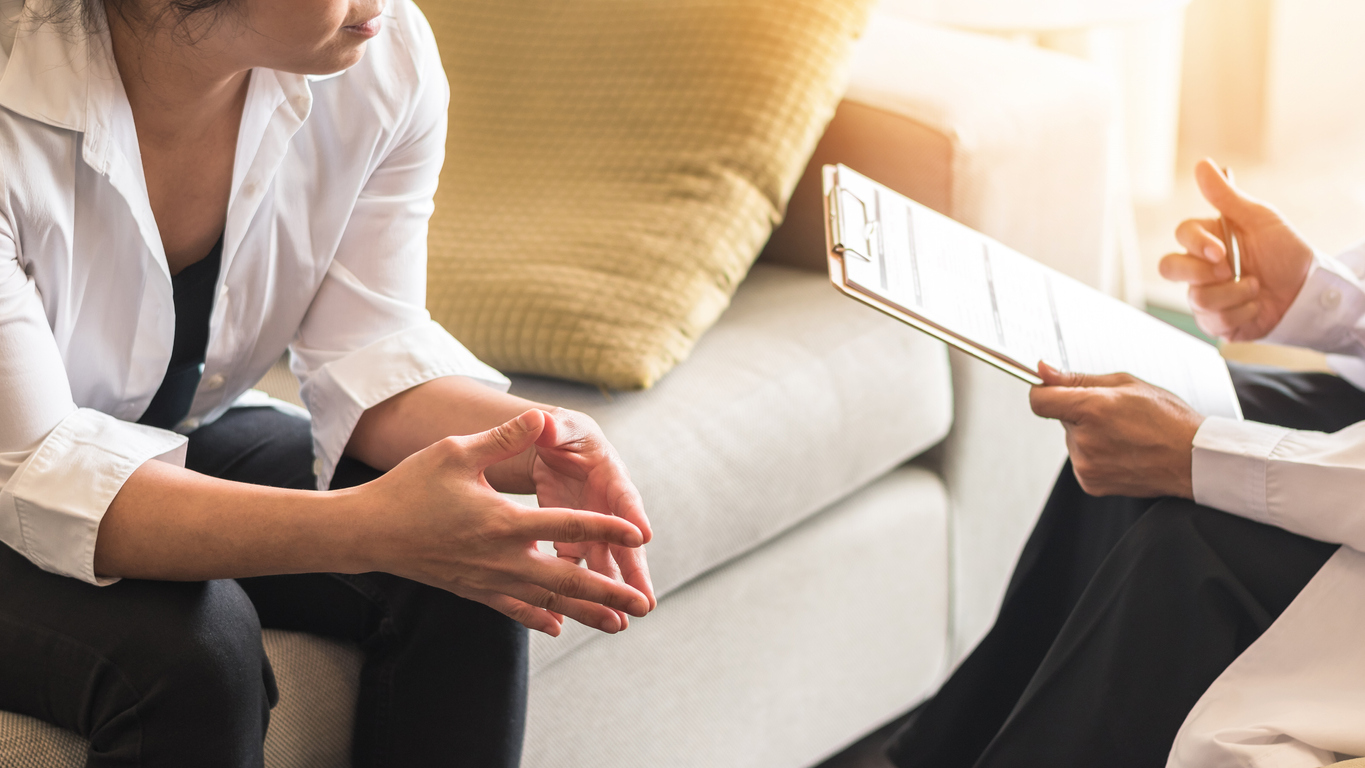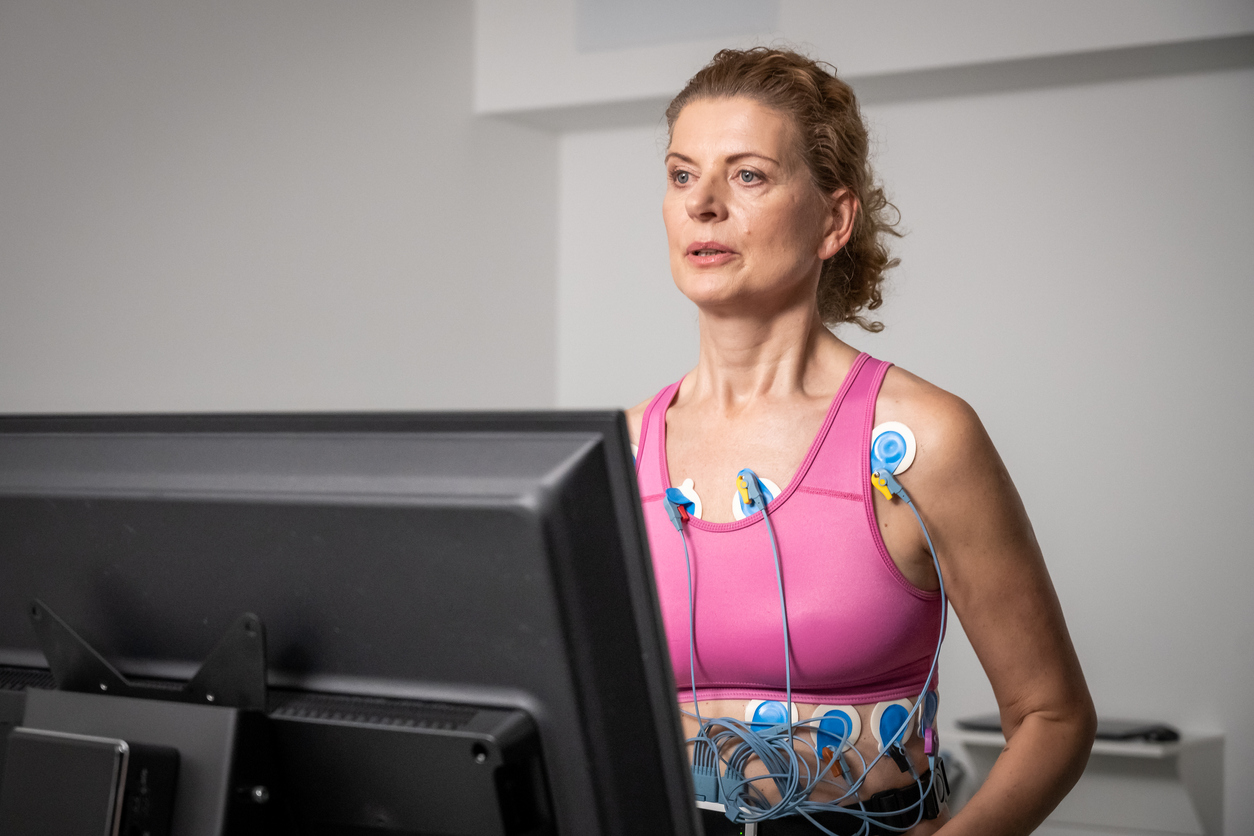
Exercise Stress ECG
What is an exercise stress ECG?

An exercise stress ECG determines how well your heart and blood vessels work during physical activity, such as walking on a treadmill.
As your heart works harder during exercise, this non-invasive test can help detect problems that may not be apparent while you are resting. It records how fast your heart is beating, as well as its rhythm and timing.
An exercise stress ECG is different from an exercise stress echocardiogram, which is an ultrasound of the heart while exercising. An exercise stress echocardiogram can show your cardiologist if a specific artery in the heart is problematic, while an exercise stress ECG diagnoses a more general abnormality.
Why might I need an exercise stress ECG?
Your doctor may refer you for an exercise stress ECG if you’re experiencing symptoms of heart disease such as chest pain or shortness of breath. It can help show heart rate and blood pressure response to exercise and help determine the likelihood of artery blockages or narrowing. It can also check if your current medication is working.
What to expect during an exercise stress ECG
What to expect during an exercise stress ECG
Exercise Stress ECG
What to expect

The test usually takes 30-45 minutes, but we recommend allowing an hour so that you have enough time to prepare for the test and cool down afterwards.
- You will be asked to undress to your waist. Females will be provided with a gown for privacy.
- The technician will place ECG electrodes, usually small metal discs, on your chest. These connect to an ECG machine.
- Before you start exercising, your cardiac physiologist will record your blood pressure, pulse, and your heart’s electrical activity in a resting phase.
- You will be asked to walk on a treadmill or ride a stationary bike for a period of time determined by the doctor performing the test who will take into account your physical capabilities. The gradient and speed will gradually increase to make your heart work harder. Say something immediately if you feel unwell, have chest pains or feel that you need to stop.
- Once you have stopped exercising, you will have time to cool down and recover.
Normal activities can usually be resumed after the test.
One of our cardiologists will review the results and provide a full report back to your referring doctor, who will contact you for the next steps.
Frequently Asked Questions
How do I prepare for my test?
Some heart medications can affect the accuracy of the test. Consult your doctor about whether you should stop taking them beforehand. Don’t stop taking medications without talking to your doctor first.
What should I do on the day of the test?
- Bring a list of your current medications.
- Wear a two-piece outfit and comfortable footwear that’s suitable for exercising.
- Do not wear talc, body lotion or neck chains.
- Have only a light meal beforehand.
- Do not consume caffeine, alcohol or nicotine for 2 hours before the test.
What happens immediately before the test?
- You will need to undress to the waist. Females will be provided with a gown for privacy.
- Men may require a part of their chest to be shaved.
- Electrodes will be placed on your chest.
- Sometimes a gown is worn over the electrodes.
What happens during the test?
- You will be supervised by an experienced doctor and cardiac technician.
- Your blood pressure, pulse rate and electrocardiogram will be monitored.
- The test will be stopped when the doctor feels it is appropriate.
What happens after the test?
- You will be monitored for 5 minutes after completing the exercise.
- You’ll be provided with water and a towel.
- You will be asked to remain seated in reception for a further 10 minutes to ensure you are fully recovered before leaving the medical centre.
- Normal activities can be resumed.
- One of our cardiologists will review the results and provide a full report back to your referring doctor.
- One of our cardiologists will review the results and provide a full report back to your referring doctor, who will contact you for the next steps.
What do the results of an exercise stress ECG mean?
The results of your test will be provided to your referring doctor who will explain the results to you.
Is an exercise stress ECG safe?
Complications and side effects are rare but can include:
- dizziness or fainting
- abnormal heart rhythm
- development of heart failure or heart pain
A full list of potential complications and side effects will be provided to you at your appointment. This test is non-invasive and experienced medical staff are in attendance throughout your test to manage any complications. Please discuss any concerns with your doctor or the testing team before starting the test.

How do I make an appointment?
If you have a referral from your GP or specialist, click here to find the details of your closest centre.
This information is of a general nature. If you are concerned about your heart health, discuss this with your local doctor.

